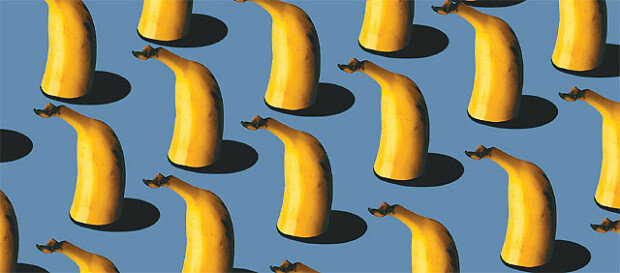Why the extinction of bananas is not far away
Why the extinction of bananas is not far away
Posted April. 07, 2018 07:26,
Updated April. 07, 2018 07:26

Unkind. That was my first impression of the book. The title “Collapse of the Banana Republic” (original English title is “Never Out of Season”) sounded strange. A picture of banana with a skull painted on it on its book cover was weird, too. But as soon as I read the first sentence, it captured my heart: “Our hunger has shaped the earth in much the way that the hunger of a caterpillar remakes a leaf.” I had a feeling that the book would be a skillful mix of food, greed, nature and ecosystem.
My expectation turned into a conviction. Author Rob Dunn, who is a biologist, writer and professor in the Department of Biological Sciences at North Carolina State University, highlights the importance of biodiversity with familiar foods, such as bananas, potatoes and chocolates. The book starts with a story of bananas. In 1950, a farmer in Central America developed a standardized variety of bananas with the same taste and size. His business flourished quickly as the quality of bananas could be predicted.
This economically brilliant idea, however, was a failure in terms of biology. In 1890, a deadly strain of the fungus causing Fusarium Wilt, which is also known as Panama disease, wiped out a plantation in Central America. Soon after, plantations in Central and South America turned all black. The tragedy of single-cultivar bananas spread to the rest of the world in 1950. As a result, Gros Michel, a cultivar of banana that was the main variety grown until the 1950s, went extinct.
This story makes one think the order of nature must not be harmed for better looking and tasting foods. After describing cruel stories of the foods we eat, the author says, “The benefits of wild nature are available only when we save the wild lands in which they live. The trouble is we don't know which wild lands hold the species we most need.”
Fans of “Between the Living and Non-living” by Shinichi Fukuoka are likely to be satisfied by this book as it easily explains about biology and suggests appropriate view on life. Great translation adds to the degree of completion of the book.
Seol Lee snow@donga.com







